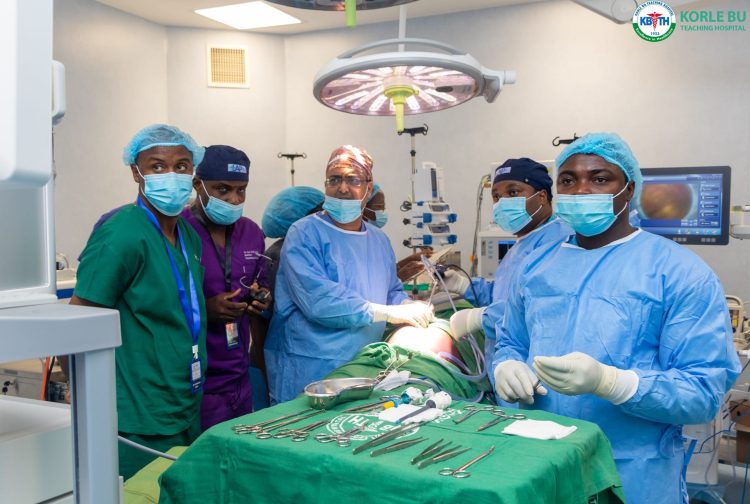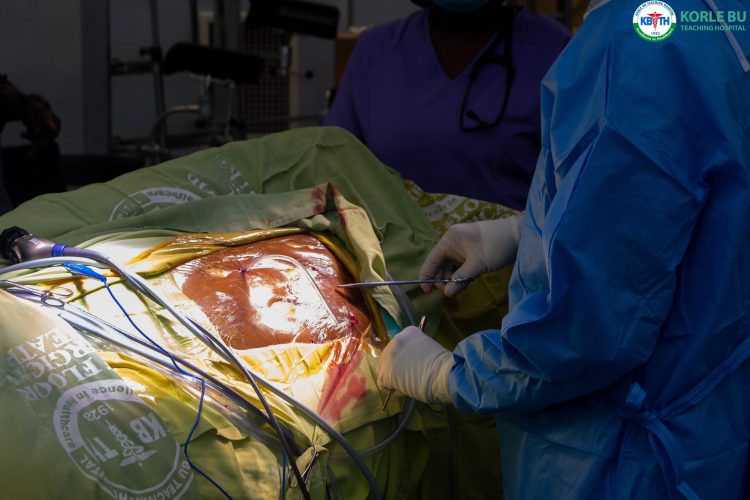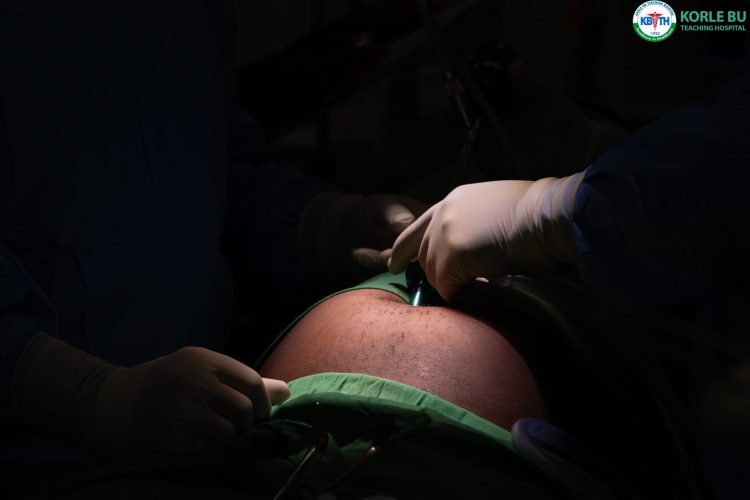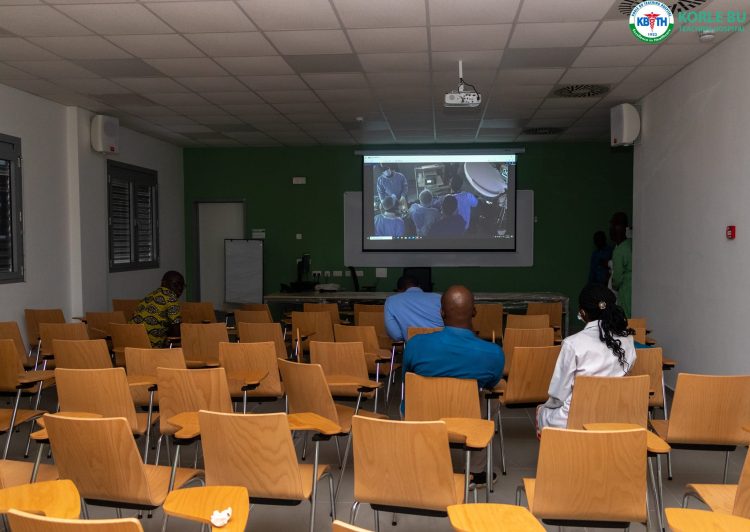In an effort to enhance urological care at Korle Bu and across the country, Dr. Isaac Asiedu, a Senior Urology Specialist, and a team of medical professionals successfully performed a pioneering laparoscopic pyeloplasty surgery on September 27.

This innovative procedure corrects kidney defects and avoids large incisions, representing a significant advancement in surgical training for healthcare providers.
Unlike the traditional open pyeloplasty, which requires a substantial abdominal incision and results in longer recovery times, the new “keyhole” technique involves making small punctures in the abdomen to insert a camera and surgical instruments.

This groundbreaking surgery was conducted in the newly constructed Urology and Nephrology Center, a state-of-the-art facility with 101 beds designed to improve healthcare services.
The center is currently in its trial phase and will soon be commissioned for official use. The minimally invasive nature of laparoscopic pyeloplasty enables quicker patient recovery, with many individuals being discharged within just one day and requiring minimal pain medication.

This contrasts sharply with the conventional method, which often necessitates extended hospital stays and higher doses of painkillers.
In an interview, Dr. Isaac Asiedu emphasized the significance of this training, noting that it aims to equip medical residents with advanced surgical skills to enhance the quality of care available in Ghana.
He expressed confidence that laparoscopic pyeloplasty will eventually become a routine procedure in hospitals nationwide, reducing the need for Ghanaians to seek such specialized surgeries abroad.

The five-day training program included participation from eight senior residents, eight junior residents, and four house officers.
Patients who benefited from free surgeries as part of the training expressed their satisfaction with the quality of treatment, comparing it to international standards.

However, they urged hospital management to establish a robust maintenance culture to ensure the longevity of the center and encouraged cooperation from patients and visitors to help maintain its facilities.
























































![[FREE FREE MONEY] Predict and Win a Guaranteed GH¢200 From Us EVERY WEEK](https://wordpress.ghanatalksradio.com/wp-content/uploads/2022/02/Predict-and-Win-Final-09-03-2021-218x150.jpg)
![[Predict & Win – 8th/Oct.] WIN A Guaranteed ¢200 From Us This Week](https://wordpress.ghanatalksradio.com/wp-content/uploads/2021/10/maxresdefault-16-218x150.jpg)
![[Predict & Win – 2nd] WIN A Guaranteed ¢200 From Us This Week](https://wordpress.ghanatalksradio.com/wp-content/uploads/2021/09/maxresdefault-50-218x150.jpg)
![[Predict & Win – 25th] WIN A Guaranteed ¢200 From Us This Week](https://wordpress.ghanatalksradio.com/wp-content/uploads/2021/09/maxresdefault-36-218x150.jpg)
![[Predict & Win – 18th] WIN A Guaranteed ¢200 From Us This Week](https://wordpress.ghanatalksradio.com/wp-content/uploads/2021/09/maxresdefault-23-218x150.jpg)









![[National cathedral] See full list of churches that have contributed since 2018](https://wordpress.ghanatalksradio.com/wp-content/uploads/2020/09/Ghana-National-Cathedral-GhanaTalksRadio-100x70.jpg)



